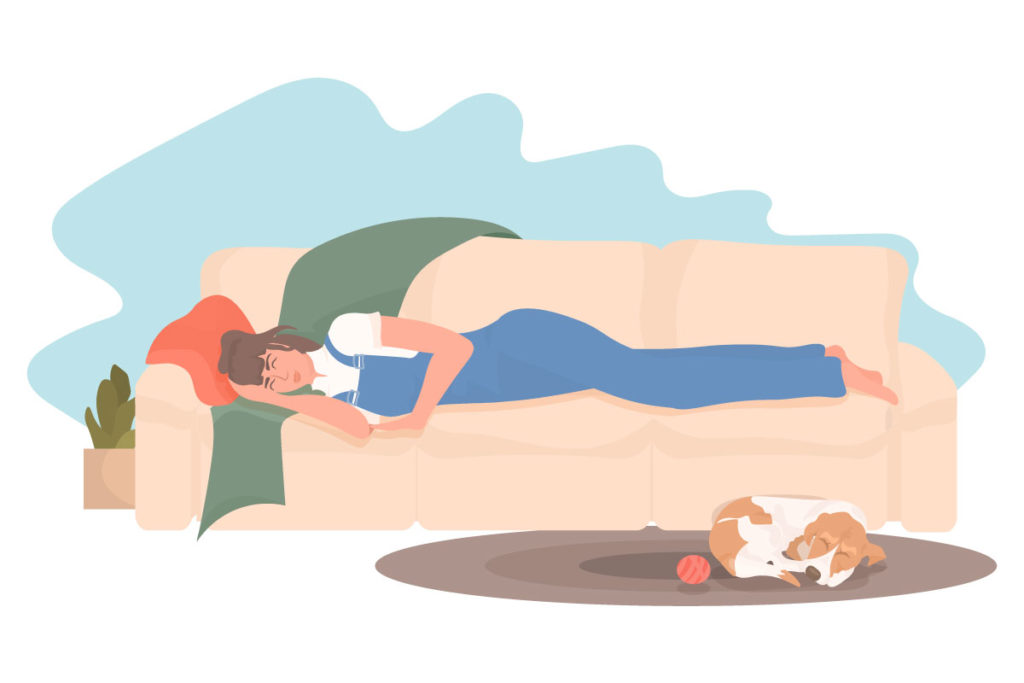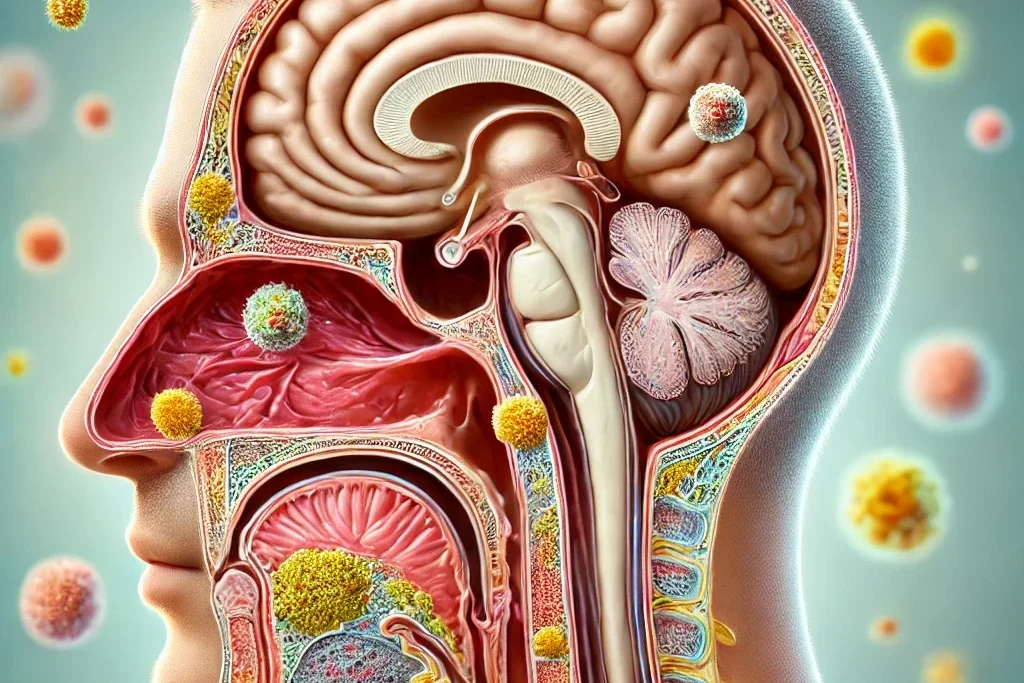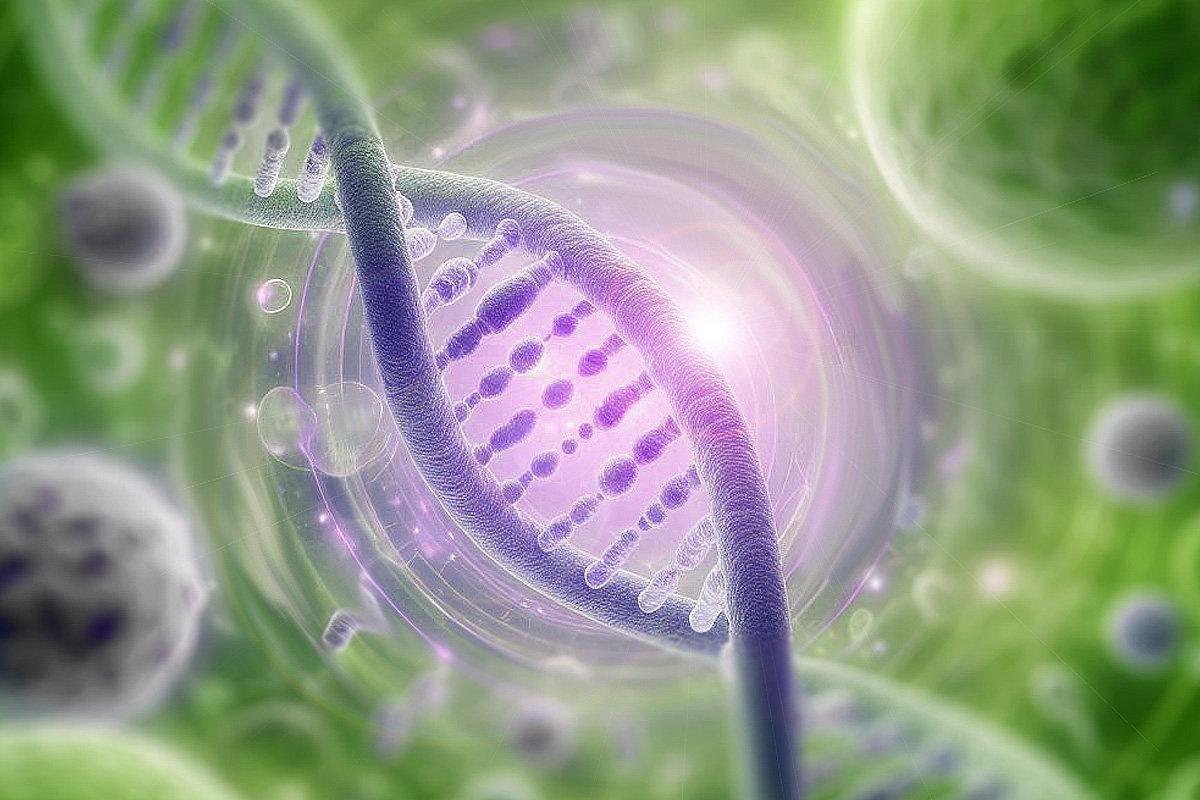Epstein-Barr virus (EBV) is most commonly known as the cause of infectious mononucleosis. Most people are exposed to the Epstein-Barr virus early in life, so 90-95% of adults have memory antibodies against EBV and can remain asymptomatic their entire life. However, an active or reactivated infection with Epstein-Barr Virus can contribute to chronic fatigue syndrome (also known as ME/CFS) and certain autoimmune conditions. Conventional treatments, including prescription antivirals, are ineffective at treating EBV infections. High-dose intravenous vitamin C is an effective treatment for infection with the Epstein-Barr virus.

What is Epstein-Barr Virus?
The Epstein-Barr virus is in the herpes virus family and is known as Human Herpesvirus 4 (HHV-4). Viruses infect human cells for survival and replication. EBV infects various human cells, especially immune cells, including lymphocytes, monocytes, and neutrophils. Infection with EBV inhibits the ability of immune cells to respond to antigens. This may be why EBV infections may cause someone to be susceptible to other viral and bacterial infections, autoimmune conditions, and cancer.
Because the Epstein-Barr virus reduces immune cell function, it is essential to successfully treat an infection with EBV before attempting to treat tickborne infections like Lyme disease
EBV is associated with Chronic Fatigue Syndrome (ME/CFS)
Infection with Epstein-Barr virus has long been associated with ME/CFS. It was initially thought EBV was the cause of an infection outbreak of the first cases of chronic fatigue syndrome in Lake Tahoe in the mid-1980s. Since then, many studies have been conducted to determine if elevated EBV antibody titers are associated with ME/CFS.
Some studies have correlated chronic fatigue syndrome only with active Epstein-Barr virus infections. In contrast, other studies have demonstrated an association with elevated EBV IgG titers (past or reactivated infection) and ME/CFS. EBV does not cause all cases of chronic fatigue syndrome. Still, a subset of people with ME/CFS test positive for EBV, and effective treatment of Epstein-Barr virus improves symptoms of chronic fatigue syndrome.
Treatment of Viral Infections with Vitamin C
Vitamin C deficiency was first recognized as the cause of scurvy in the early 1900s. Historically, respiratory infections and poor wound healing was associated with vitamin C deficiency, and increasing vitamin C levels improved outcomes. Viral and bacterial infections also decrease levels of vitamin C in the human body. Since humans do not make vitamin C, they must get it from an exogenous source. The 2017 review paper titled Vitamin C and Infections summarizes the history of vitamin C and its relationship with infections.
High Dose Vitamin C Produces an Oxidative Reaction
Vitamin C is primarily known as an antioxidant which means it helps protect against oxidative stress. However, in higher concentrations, vitamin C functions as a pro-oxidant. It is through the pro-oxidant, or oxidative, mechanism that vitamin C can kill viruses and bacteria. Vitamin C dosages above 20 gram (20,000 mg) are generally considered oxidative and are often referred to as “high-dose.”
Research has shown oral supplementation with vitamin C can only reach blood plasma concentrations of 220 micromol/L while 50 grams intravenous vitamin C concentrations peak at 13,4000 micromol/L
High-dose Intravenous Vitamin C Effective Against Epstein-Barr Virus
In 2014 the first clinical study on the use of high-dose vitamin C for EBV was published. The authors reviewed the charts of patients who had been diagnosed with EBV and treated with intravenous vitamin C. Of the patients that tested positive for EBV, 178 had elevated IgG antibodies, and 40 had elevated IgM antibodies to EBV. Most of the patients had a diagnosis of chronic fatigue syndrome.
Since this was a retrospective study, the patients received various dosages of intravenous vitamin C, and the number of treatments varied per patient. The results of the analysis are:
- The group with elevated IgG antibodies had a 40% reduction in EBV viral titers after intravenous vitamin C, and 91% of the patients had improvements.
- The number of treatments directly affected the percent reduction of antibodies (2.7% reduction in antibodies per treatment). The more treatments the patient received, the more significant the decrease in EBV antibodies.
- There was an inverse relationship between vitamin C levels in blood plasma and EBV IgM and IgG antibodies. The higher the vitamin C concentration in the plasma achieved by intravenous vitamin C, the lower the Epstein-Barr virus antibodies – especially for people with elevated IgM titers.
- The researchers also discovered the higher a patient’s EBV antibody levels, the lower the peak vitamin C levels after treatment. The authors state, “This indicates that subjects with higher EBV infection burden (as indicated by antibody levels) are highly depleted of vitamin C, meaning that they require more treatments to replenish tissue ascorbic acid levels.”
“Our data provide evidence that high dose vitamin C therapy may have a positive effect on disease duration and may reduce viral antibody levels. This is, to our knowledge, the first clinical study of ascorbic acid and EBV infection. The reduction in EBV EA IgG and EBV VCA IgM antibody levels over time during IVC therapy is consistent with observations from the literature that millimolar levels of ascorbate hinder viral replication in vitro.”
Case of a 44 year old female IgM positive for Epstein-Barr virus, Lyme, Bartonella, and Mold
I first met Sarah in August 2019. She was referred to me because she was diagnosed with Lyme disease and Bartonellosis. She had been exposed to mold the previous winter after a roof leak in the house she was renting. A couple of years before I met Sarah, she tested positive for Epstein Barr virus with IgG NA, IgG VCA, and IgM VCA. She said, “I always thought I had mono when I was younger but was never tested.” She had grown up in Rhode Island and remembered struggling with fatigue her entire life. She recalled experiencing severe fatigue in high school, with difficulty waking up in the morning and feeling exhausted in the afternoon.
Sarah had regular checkups during childhood with her pediatrician but was not adequately evaluated for her fatigue. She would often hear a dismissive response, such as “you will grow out of it” or “all teenagers are fatigued.” In her early 40’s doctors started testing her thyroid hormone levels to see if that was the cause of her fatigue.
It is less common to have IgM antibodies to EBV and suggest an active infection. Since EBV infects immune cells like lymphocytes and neutrophils, the strategy was to treat the EBV before treating Lyme disease and Bartonellosis successfully. I prescribed Sarah 50 grams of intravenous vitamin C twice per week for six weeks, along with some herbal supplements. After completing the protocol, Sarah’s EBV IgG titers had reduced, and her IgM titer was normal.



